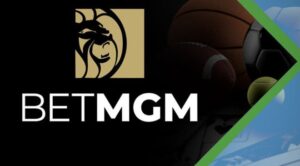Key Moments:
- The Italian government plans to launch a national cybersecurity shield targeting illegal gambling sites accessed on public internet devices.
- Operators are now required to pay €7 million per license, with 46 applications approved under the updated system.
- The Ministry of Economy and Finance underscored the vital role of online protections as the country adapts its gambling regulations.
Government Steps Up Efforts to Tackle Black Market Gambling
Italy is advancing a comprehensive plan to tackle illegal gambling. A core component is the introduction of a “cybersecurity shield” under the forthcoming Budget Law. This initiative aims to restrict access to unauthorized gambling websites. It targets devices connected to public networks in venues such as cafes and libraries. According to AgiproNews, these establishments must install dedicated anti-illegality software. The software will operate in tandem with the Customs and Monopolies Agency (ADM) and Italy’s state technology partner SOGEI. The software will block attempts to connect to black market gambling domains.
AgiproNews reported, “The software will be made available for download to all operators and relevant authorities, creating a national safeguard against illegal gaming domains.”
Compliance Framework and Enforcement Measures
The ADM will be responsible for developing new regulatory guidance to ensure adherence to the cybersecurity shield requirements within the gambling sector. Inspections will be conducted jointly with the Guardia di Finanza. They will focus on whether establishments comply with the new controls. Penalties for non-compliance include fines. For devices in “closed browsing” mode that redirect users to unlicensed platforms, criminal charges may apply.
The push for updated controls follows a decision by Italy’s Constitutional Court. The Court ruled against the Balduzzi Decree, which had enforced a broad ban on gaming devices in public places. It labeled the decree as disproportionate and unnecessarily restrictive for businesses. Nevertheless, ADM maintained prohibitions on devices specifically designed for gambling activities, such as totems and closed-circuit setups.
Regulatory Changes and Market Significance
The Ministry of Economy and Finance (MEF) has highlighted the critical importance of introducing robust online safeguards to underpin the new licensing and regulatory framework. The gambling industry in Italy reportedly generates approximately €21 billion in gross income and delivers around €8 billion annually to state coffers through taxation and levies. As part of the reforms, licensed operators must pay €7 million per license, and the ADM has already approved 46 applications.
The MEF noted that Italy retains its position as Europe’s fourth-largest regulated gambling market, experiencing increasing demand for online gambling, which is currently valued at €1 billion per year. The compliance regime also requires operators to actively encourage responsible gambling by offering tools for player management and issuing alerts during high-risk games.
| Key Financial Metrics | Value |
|---|---|
| Total gross income from gambling industry | €21 billion |
| Annual contribution to state finances | €8 billion |
| License fee per operator | €7 million |
| Approved license applications | 46 |
| Online gambling market value | €1 billion |
Challenges from Offshore Operators and Policy Evolution
Despite these regulatory enhancements, Italy still faces persistent threats from the illegal gambling market. The European Gaming and Betting Association (EGBA) estimated in 2023 that illicit betting activities could reach €1 billion in value. The country’s stringent Dignity Decree, which imposes a ban on advertising and sponsorship, has been exploited by offshore operators, spurring demand for unregulated “quick-deposit” skin sites outside of Italian jurisdiction.
To address these enduring challenges, the Italian government, under Prime Minister Meloni, is moving away from strict blanket bans in favor of more progressive marketing and sponsorship rules. Parliament is expected to consider a new mandate later this year, shaped by consultations with Serie A, Italian media outlets, and the Ministry of Sports. Discussions between Sports Minister Andrea Abodi and Serie A president Ezio Simonelli will further influence the regulatory direction.
Looking ahead to 2026, expectations point to additional technical revisions targeting both online and land-based gambling operations, as the government seeks a balance between effective oversight and the sector’s economic contributions.
- Author


